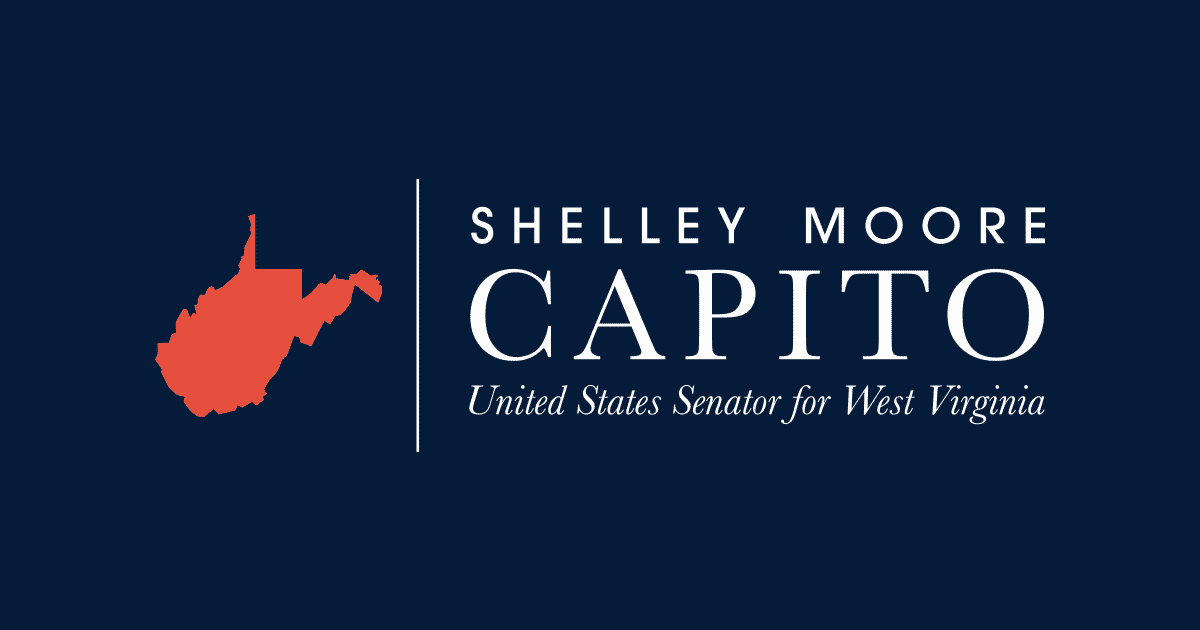Source: United States Senator for West Virginia Shelley Moore Capito
Click here or the image above to watch Ranking Member Capito’s opening remarks.
WASHINGTON, D.C. – Today, The U.S. Senate Environment and Public Works (EPW) Committee held a hearing entitled, “PFAS: the View from Affected Citizens and States.” The hearing witnesses included West Virginian, Scott Mandirola, who is the Deputy Secretary for External Affairs for the West Virginia Department of Environmental Protection (WVDEP).
Below is the opening statement of Ranking Member Shelley Moore Capito (R-W.Va.), as prepared for delivery:
“Thank you, Chairman Carper, for calling today’s hearing.
“I also want to thank our witnesses for joining us, and I look forward to their remarks.
“I am glad we are all here today to discuss this important issue.
“Addressing the challenges of PFAS contamination is one of my highest environmental policy priorities, as many of you know, and I have long led bipartisan efforts to address the issue.
“For example, I took a lead role in provisions reported out of this committee and included in the Fiscal Year 2020 National Defense Authorization Act establishing a clear process for EPA to publicly share information from PFAS manufacturers, processors, and users around the country.
“To address the substantial environmental and public health impacts from PFAS in West Virginia, I secured language in the Fiscal Year 2019 Department of Defense Appropriations Act to reimburse the city of Martinsburg for the significant costs involved in upgrading the Big Springs water treatment facility.
“The upgrades at that facility addressed PFAS resulting from federal government releases—from the base—of aqueous firefighting foam, detected in the drinking water.
“I also ensured Berkeley County, which is where Martinsburg is, was included in a joint study between the Department of Defense and the Agency for Toxic Substances and Disease Registry on PFAS exposure in populations living and working on and around military bases.
“Of particular importance to me is timely action by the EPA to set drinking water standards for two specific PFAS: PFOS and PFOA.
“Assuring the American people’s confidence that their drinking water is safe is essential, and I have pressured the EPA directly—both the prior administrator and this one—and via legislative proposals for years to move forward on regulating PFOS and PFOA.
“That process is now underway, though it was temporarily frozen by the Biden administration when they first came into office.
“In response to my February 17, 2021, letter flagging this issue for White House Chief of Staff Ronald Klain, EPA promptly reissued its final determination to regulate both PFOS and PFOA under the Safe Drinking Water Act.
“I am very grateful to Mr. Klain for the quick response and that EPA continues to work expeditiously to establish a National Primary Drinking Water Regulation; however, much work remains.
“I agree with EPA’s assessment that many of the regulatory and enforcement actions the Executive Branch and states may pursue related to PFAS hinge on continued research and a more in-depth understanding of the chemistry and environmental and health challenges posed by this broad class of compounds.
“I wrote to the EPA on April 19, 2021, requesting updated information on the agency’s research initiatives in order to inform me and my colleagues when we can expect the scientific data and information required to support regulatory actions will be available to EPA. Unfortunately, I am still awaiting a response from the agency.
“It is critical that EPA ensures that science—not politics—is driving EPA’s regulatory decisions.
“While the federal government continues its much-needed regulatory processes, West Virginia has utilized its state authorities to take action, led by its Department of Environmental Protection.
“Sadly, West Virginia has faced the legacy of PFAS contamination originating from both industrial and military sites – the two major sources of contamination nationally.
“But, it is this experience that has made the state government vigilant in its response.
“A chemical facility in Parkersburg led to PFAS pollution entering the environment for decades and resulted in an unprecedented epidemiological study of the population to identify the resulting health risks.
“As I mentioned earlier, in Martinsburg – on the other side of our state – an Air National Guard Base’s use of PFAS-laden firefighting foams contaminated the Big Springs Water filtration plant.
“I worked with my colleague, Senator Manchin, to secure the nearly $5 million needed to provide the necessary filtration for that system, after the military first agreed to pay for it and then tried to walk away. But, we wouldn’t let them.
“I know there are similar stories around the country.
“As I believe we all know and will hear reaffirmed today – PFAS are all over this country with background levels of contamination from a multitude of sources.
“But, the actual threats to human health and the immediate environment tend to be highly localized.
“Which is exactly why a deliberative, science-backed approach to testing and remediation is necessary.
“The state of West Virginia authorized and funded a review of its drinking water systems, and currently, the West Virginia Department of Environmental Protection is sampling for PFAS in nearly every community water system across the state, and I am pleased that Scott Mandirola is here as a witness today to provide an update on this ongoing effort.
“While I am proud to see West Virginia taking initiative in response to PFAS contamination, I am also aware of the critical need for continued scientific research to form the basis of appropriate federal action that supports West Virginia and other states as they try to assess and respond to these challenges.
“With plenty of misinformation out there, appropriate risk communication from the federal government is also crucial for helping state and local governments and our constituents understand and address PFAS pollution – and not undermining their ability to do so.
“I very much look forward to hearing from all of our witnesses on these topics today.
“Thank you, Mr. Chairman. I yield back.”
# # #
